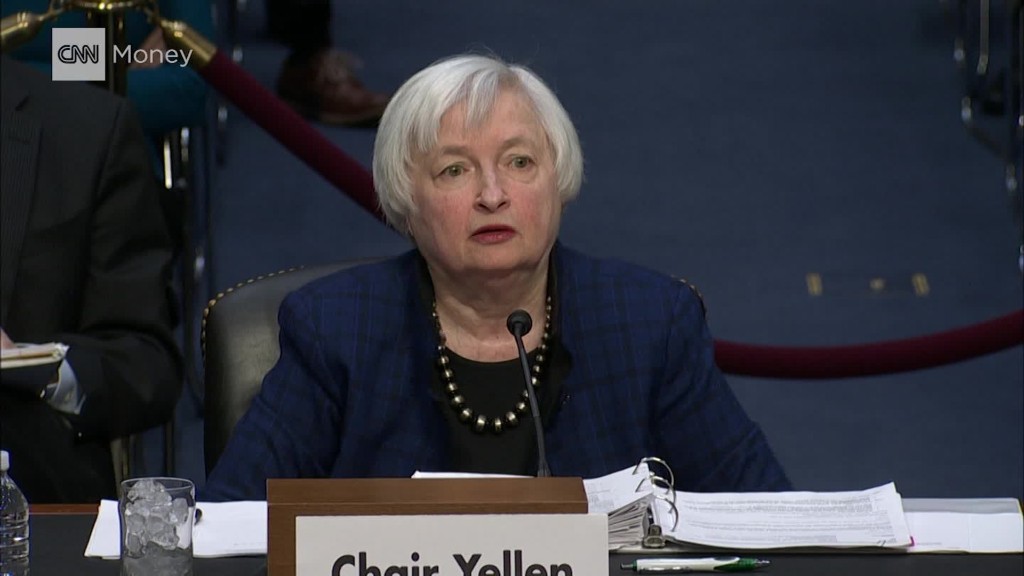
Seeking to provide some regulatory relief to community banks and other small financial institutions, bank regulators on Thursday asked Congress to consider several changes to the 2010 Dodd-Frank financial reform laws.
The regulators, which include the Federal Reserve and Federal Deposit Insurance Corp., mapped out how Congress and regulators could tailor regulations on smaller banks to help spur economic growth.
"In terms of reducing the regulatory burden, the biggest bang for the buck is to reduce the burden on smaller financial institutions," said FDIC Chairman Martin Gruenberg during a Senate Banking Committee hearing.
Top policymakers stressed proposed changes to the Dodd-Frank law should not undermine the strength of reforms born from the 2008 recession and aimed at preventing another financial crisis.
"I don't think what we are talking about here amounts to deregulation," said Federal Reserve Governor Jerome Powell, the central bank's regulatory point man. "I think it amounts to making regulation more efficient while protecting the important gains we have made."
Powell advised Congress to consider exempting smaller firms from the so-called Volcker Rule, which bans banks from taking risky bets with taxpayer money. He said the Fed supports increasing the $50 billion asset threshold set in the 2010 law so that the rule would only apply to the largest banks. He did not specify what the cutoff should be.
Related: Fed taps Jerome Powell to head oversight of 'too big to fail' banks
President Trump's acting Comptroller of the Currency, Keith Noreika, suggested lawmakers reduce "duplication and redundancy" in the federal banking laws. He noted that such redundancies cost community banks more, especially when they have to comply with rules from multiple regulators.
"Congress could foster economic growth by reducing regulatory overlap and increasing coordination within the federal financial regulatory framework," said Noreika in prepared testimony.
The testimony by the regulators at the five agencies comes less than two weeks after the Trump administration unveiled a 150-page report on how regulators and Congress could address regulations that they claim crimp banks' ability to lend and stifle economic growth.
Related: Trump gives banks (a lot of) what they want
The report, which was released by the Treasury Department, recommended giving the president the power to fire the head of the Consumer Financial Protection Bureau, giving Treasury greater power to oversee bank regulators, requiring regulatory agencies to analyze the cost of new rules and stripping the Federal Deposit Insurance Corp. of its responsibility to oversee banks' plans for how they should be unwound if they fail.
The report also endorsed the idea of forcing the Fed to make its stress tests of the largest U.S. banks more transparent. Stress tests are simulations regulators run to gauge a bank's ability to weather a downturn.
Powell said the Fed was committed to improving transparency of the stress test process and hinted of early plans to disclose more information publicly.
While regulators largely embraced the Trump administration's plans to revamp post-crisis rules, there were a few recommendations they opposed.
Powell described the recommendations as a "mixed bag," suggesting he would not support all of the ideas proposed without offering specific examples.
Related: The most dangerous part about killing Dodd-Frank
The FDIC's Gruenberg said both his agency and the Fed should remain involved in reviewing the largest banks so-called living will plans in the event of a collapse. Among Treasury's recommendations was to remove the FDIC from the process.
Both Powell and Gruenberg support changing the frequency of the living will process from every year to two.
The two regulators also expressed their strong support of allowing regulators to keep their authority to safely unwind a bank in the event of a failure. Treasury is currently undertaking a separate review of this backstop measure.
The authority "really is the last recourse, but a critically important backstop," said Gruenberg.


